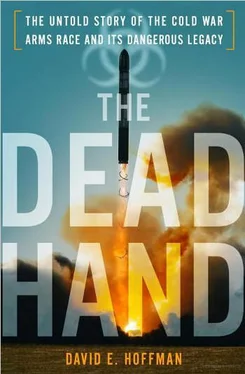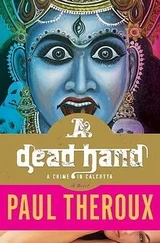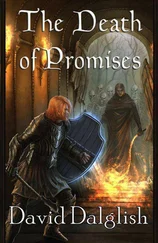Thatcher visited Reagan at Camp David on December 22, 1984. In preparation for the visit, the president had in his pocket seven note cards of talking points. The second card said, “Understand Gorbachev was impressive.” And, “What are your impressions?” 12Thatcher delivered a detailed report on the lunch at Chequers: human rights, economics, arms control. Thatcher said Gorbachev was more charming and more open to discussion and debate than his predecessors. She recounted how Gorbachev had zeroed in on the Strategic Defense Initiative. In response, Reagan opened up with a fulsome description of his great dream as both a technological quest and a moral imperative, with an ultimate goal of eliminating nuclear weapons. It was the first time Thatcher had heard Reagan talk about it directly, and she later confessed she was “horrified.” But she listened.
She also relayed to Reagan what Gorbachev had said to her: “Tell your friend President Reagan not to go ahead with space weapons.” 13
To understand the rise of Mikhail Gorbachev, who, with Reagan, would change the world in the years ahead, we must first reach back a half century into the tumultuous events that confronted his people and his country, from Stalin’s terror and the unimaginable losses of World War II, through the hardships, thaws, triumphs and stagnation of the postwar years. All of these directly touched Gorbachev. In his early life, there are few clues he would later become a catalyst of immense change. He was a child of the Soviet system, hardly a radical. But one thread is visible through it all. Gorbachev, over a long period of time, saw a reality that was strikingly different from the artificial world portrayed by the party and the leadership. As he rose through the ranks, he accumulated insights and revelations about the huge chasm between how people actually lived and the stuffy slogans of those who ruled. Raisa, too, grasped the depth of this chasm, and reinforced Gorbachev’s determination to change it.
Gorbachev’s doubts were sown incrementally, over a generation, and for many years kept to himself. His first reaction to a disappointment or failure was always to strive to improve the system. He was never in a frame of mind to tear it down. By the time he became Soviet leader, he had fully absorbed the abysmal reality, but had limited understanding of how to fix it. His greatest skill was in political maneuvering to achieve his goals. He tried to rescue the system by unleashing forces of openness and political pluralism, hoping that these would heal the other maladies. They could not.
Gorbachev’s achievements in ending the Cold War—braking what he called the speeding locomotive of the nuclear arms race, allowing a revolution in Europe to unfold peacefully, ending the confrontation in the Third World—were not his first objectives. They grew out of his desire for radical change at home, rooted in his experience as a peasant son, a young witness to war, a university student during the thaw, a party official in the stagnation years and, most importantly, out of his own deep impressions about what had gone wrong.
Gorbachev did not set out to change the world, but rather to save his country. In the end, he did not save the country but may have saved the world.
Mikhail Sergeyevich Gorbachev was born March 2, 1931, in the small village of Privolnoye, in the black earth region of Stavropol in southern Russia. His parents, Sergei and Maria, worked the land; life in his village was little changed over centuries. From childhood, Gorbachev remembered “adobe huts with an earthen floor, and no beds at all”—people slept near the oven for warmth. 14Gorbachev spent much of his childhood as the favorite of his mother’s parents; he often lived with them. They kept books of Marx, Engels and Lenin on a shelf, but also a Russian Orthodox religious icon. His maternal grandfather, Pantelei, was remembered by Gorbachev as a tolerant man, and immensely respected in the village. In those years, Gorbachev was the only son; a brother was born after the war, when he was seventeen years old. He seems to have had a happy childhood. “I enjoyed absolute freedom,” he recalled. “My grandparents made me feel like the most important member of the family.”
The country was soon plunged into suffering and tragedy. Famine struck the Stavropol region in 1933, when Gorbachev was just two years old. Stalin had launched the mass collectivization of agriculture, a brutal process of forcing the peasants into collective farms and punishing those known as kulaks , who were somewhat better off. A third to half of the population of Privolnoye died of hunger. “Entire families were dying, and the half-ruined ownerless huts would remain deserted for years,” Gorbachev remembered. Stalin’s purges took millions of lives among the peasantry in the 1930s.
Gorbachev’s family was touched by the purges, too. His grandfather on his father’s side, Andrei, rejected collectivization and tried to make it on his own. In the spring of 1934, Andrei was arrested and accused of failing to fulfill the sowing plan set by the government for individual peasants. “But no seeds were available to fulfill the plan,” Gorbachev recalled of the absurdity of the charge. Andrei was declared a “saboteur” and sent to a prison camp for two years, but released early, in 1935. On his return, he became a leader of the collective farm.
Two years later, grandfather Pantelei was also arrested. The charges were similarly absurd, that he had been a member of a counterrevolutionary organization and sabotaged the collective farm’s work. The arrest was “my first real trauma,” Gorbachev recalled. “They took him away in the middle of the night.” His grandfather was treated badly. Pantelei was finally released one winter evening in 1938, and returned to Privolnoye. Sitting at a hand-planed rustic table, he told the family how he had been beaten and tortured. Pantelei said he was convinced that Stalin did not know of the misdeeds of the secret police, and he did not blame the Soviet regime for his misfortunes. Pantelei never discussed it again. Gorbachev was only seven years old at the time, but later said the events left a deep, lasting impression on him. He held the secret of Pantelei’s ordeal privately, and only discussed it in the open a half century later.
By the late 1930s, both grandfathers were back at home, and village life seemed to be on an upswing. The families spent Sunday picnics in the woods. Then, on one of these Sundays, June 22, 1941, came terrifying news. A radio announced: the Germans had invaded the Soviet Union.
Gorbachev’s father was soon off to the front. He bought his ten-year-old son an ice cream, and a balalaika for a keepsake. Women, children and old men sobbed as the soldiers left. A massive snowfall that first winter put Privolnoye into deep isolation. There were no radios and newspapers seldom arrived. Gorbachev remembered that he “skipped from childhood directly into adulthood.” In the summer of 1942, the village fell under German occupation for four and a half months. The war devastated the countryside; they had no seed, no machines, no cattle. Famine spread in the winter and spring of 1944. The family was saved when Gorbachev’s mother, then thirty-three years old, sold his father’s last belongings, two pairs of boots and a suit, in a neighboring town for a 109-pound sack of corn.
In the summer of 1944, the family received a letter from the front. It contained family photographs and an announcement that Sergei Gorbachev had been killed in battle in the Carpathians. “The family cried for three days,” Gorbachev recalled. Then another letter came from his father saying he was alive. Both letters were dated August 27, 1944. Four days later, yet another letter—Sergei was indeed alive! How did it happen? His father later told Gorbachev that after an ambush, his unit had found his bag alone. He was missing and assumed dead. They sent the first letter to the family. Only days later did they discover him alive, but seriously wounded. Sergei told his son this confusion was typical of the chaos of war. “I have remembered this all my life,” Gorbachev later wrote.
Читать дальше












